Jean-François Toubeau
Decision-Focused Learning for Complex System Identification: HVAC Management System Application
Jan 24, 2025
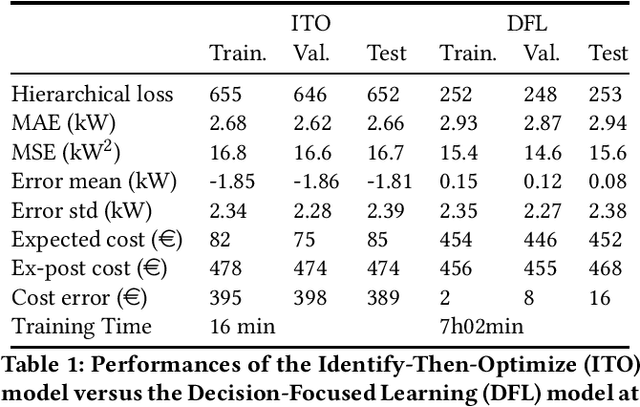
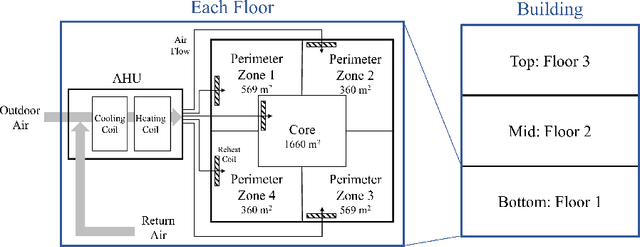
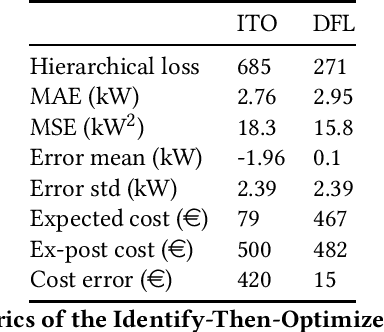
Abstract:As opposed to conventional training methods tailored to minimize a given statistical metric or task-agnostic loss (e.g., mean squared error), Decision-Focused Learning (DFL) trains machine learning models for optimal performance in downstream decision-making tools. We argue that DFL can be leveraged to learn the parameters of system dynamics, expressed as constraint of the convex optimization control policy, while the system control signal is being optimized, thus creating an end-to-end learning framework. This is particularly relevant for systems in which behavior changes once the control policy is applied, hence rendering historical data less applicable. The proposed approach can perform system identification - i.e., determine appropriate parameters for the system analytical model - and control simultaneously to ensure that the model's accuracy is focused on areas most relevant to control. Furthermore, because black-box systems are non-differentiable, we design a loss function that requires solely to measure the system response. We propose pre-training on historical data and constraint relaxation to stabilize the DFL and deal with potential infeasibilities in learning. We demonstrate the usefulness of the method on a building Heating, Ventilation, and Air Conditioning day-ahead management system for a realistic 15-zone building located in Denver, US. The results show that the conventional RC building model, with the parameters obtained from historical data using supervised learning, underestimates HVAC electrical power consumption. For our case study, the ex-post cost is on average six times higher than the expected one. Meanwhile, the same RC model with parameters obtained via DFL underestimates the ex-post cost only by 3%.
Machine Learning for Improved Gas Network Models in Coordinated Energy Systems
Sep 26, 2022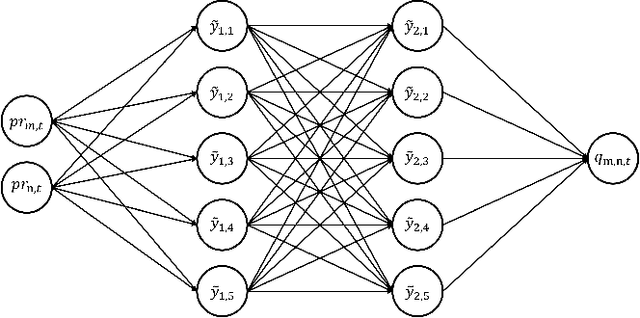
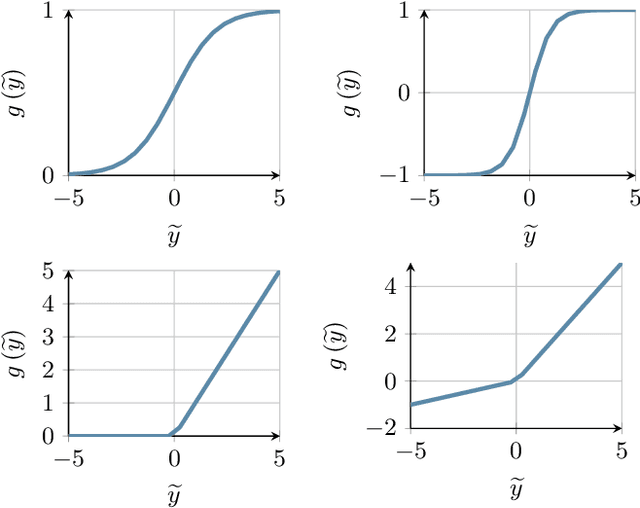
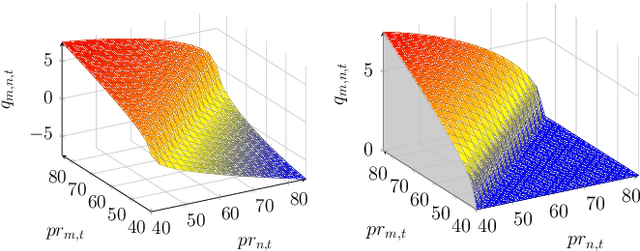
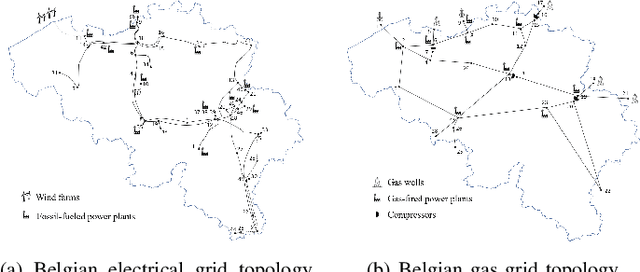
Abstract:The current energy transition promotes the convergence of operation between the power and natural gas systems. In that direction, it becomes paramount to improve the modeling of non-convex natural gas flow dynamics within the coordinated power and gas dispatch. In this work, we propose a neural-network-constrained optimization method which includes a regression model of the Weymouth equation, based on supervised machine learning. The Weymouth equation links gas flow to inlet and outlet pressures for each pipeline via a quadratic equality, which is captured by a neural network. The latter is encoded via a tractable mixed-integer linear program into the set of constraints. In addition, our proposed framework is capable of considering bidirectionality without having recourse to complex and potentially inaccurate convexification approaches. We further enhance our model by introducing a reformulation of the activation function, which improves the computational efficiency. An extensive numerical study based on the real-life Belgian power and gas systems shows that the proposed methodology yields promising results in terms of accuracy and tractability.
 Add to Chrome
Add to Chrome Add to Firefox
Add to Firefox Add to Edge
Add to Edge